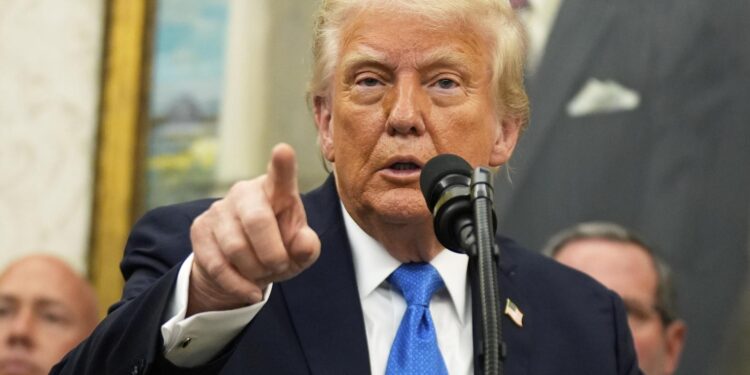Impact of Political Influence on Scientific Research: A Call for Integrity
The recent executive order from former President Trump has sparked significant alarm among researchers and policy advocates alike, as it fundamentally reshapes the framework governing scientific research in the United States. This directive emphasizes political considerations in determining research priorities, raising serious concerns about the autonomy and integrity of scientific exploration. Detractors warn that this shift jeopardizes evidence-based policymaking, potentially compromising the quality of scientific data that informs crucial public health and environmental decisions. As experts from organizations like the Union of Concerned Scientists analyze these developments, it becomes clear that intertwining science with politics poses substantial risks to both research integrity and public trust.
Political Influence Undermines Scientific Autonomy
The executive order issued by Trump presents formidable challenges to maintaining scientific integrity while eroding public confidence in vital research initiatives. By requiring federal analyses to align with specific political agendas, this mandate threatens to compromise researchers’ independence and diminish transparency—elements essential for fostering public understanding. Researchers may find their work swayed by shifting political interests, which could distort findings or stifle critical inquiries necessary for societal advancement. This departure from evidence-driven decision-making not only undermines the caliber of scientific contributions but also affects how information is communicated to the general populace.
Furthermore, these implications extend beyond academia; they risk destabilizing public policy frameworks and diminishing trust in governmental institutions. When science is entangled with partisan politics, misinformation can proliferate, alienating citizens who rely on accurate data for health-related choices and environmental stewardship. The following table illustrates key concerns arising from this situation:
| Issue | Consequences |
|---|---|
| Political Interference | Reduced credibility of research outcomes |
| Selective Data Interpretation | Erosion of informed policy-making processes |
| Diminished Public Trust | Heightened skepticism towards scientific authority |
In light of these developments, it is imperative to advocate for protective measures that uphold scientific integrity while ensuring that policymaking remains rooted in rigorous and impartial inquiry. The vitality of our democracy hinges on reclaiming science from partisan influences.
The Intersection of Research Funding and Political Agendas: Consequences Ahead
The recent executive order has raised alarms regarding how political agendas can infiltrate funding decisions within the realm of scientific inquiry. By stipulating that federal financial support must reflect certain ideological priorities, this directive threatens objectivity—the cornerstone upon which truthful research rests. Scientists now face a dilemma: align their proposals with prevailing political interests or risk losing funding altogether—a scenario likely leading to important questions being overlooked if they do not conform to acceptable narratives under current guidelines.
This environment compromises scientists’ autonomy while potentially stifling innovation; as a result, there may be a decline in public confidence regarding empirical findings produced under such constraints.
The long-term ramifications could extend well beyond immediate impacts on individual studies or projects; as funding becomes increasingly contingent upon political approval processes, diversity within research topics may suffer significantly—narrowing our understanding across critical areas such as climate change adaptation strategies or social equity initiatives.
Funding bodies might prioritize projects aligned with partisan perspectives over those grounded firmly in sound science yet politically contentious—a shift detrimental not only to institutional credibility but also harmful toward overall societal welfare.
To illustrate potential consequences further consider this table highlighting vulnerable areas within ongoing investigations:
| Research Focus Area | Possible Outcomes at Risk |
|---|---|
| Climate Science Studies |










